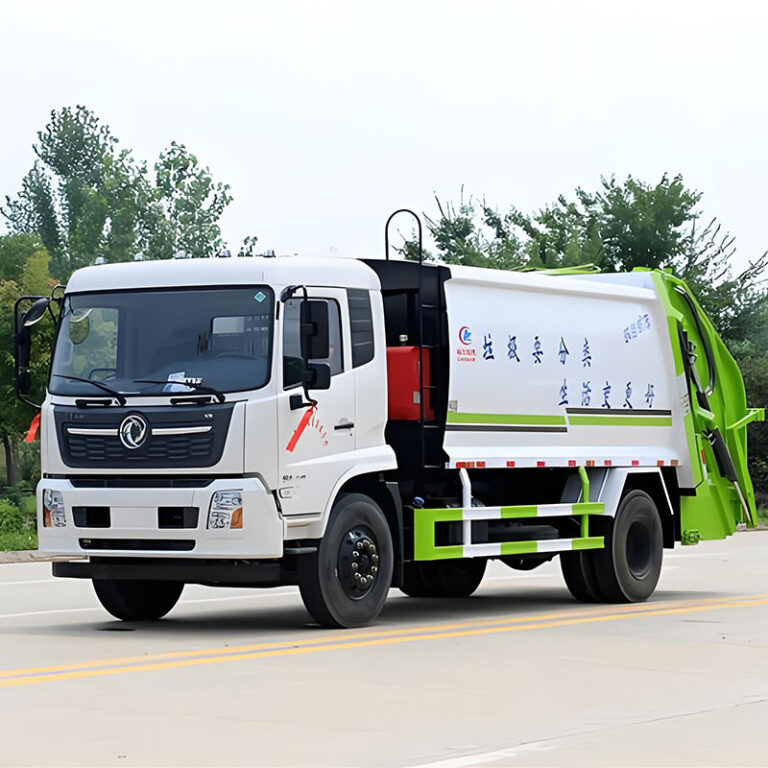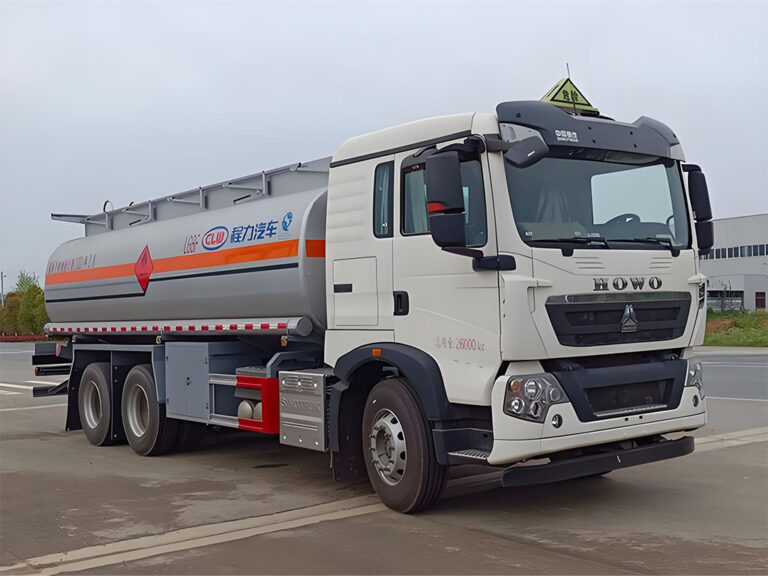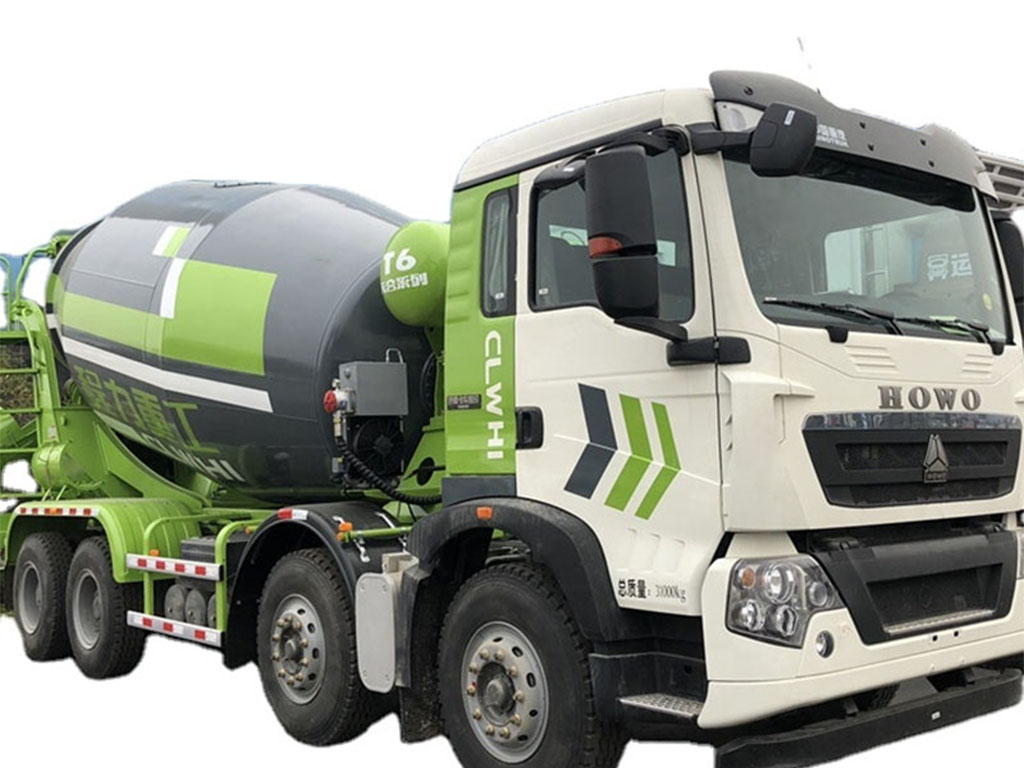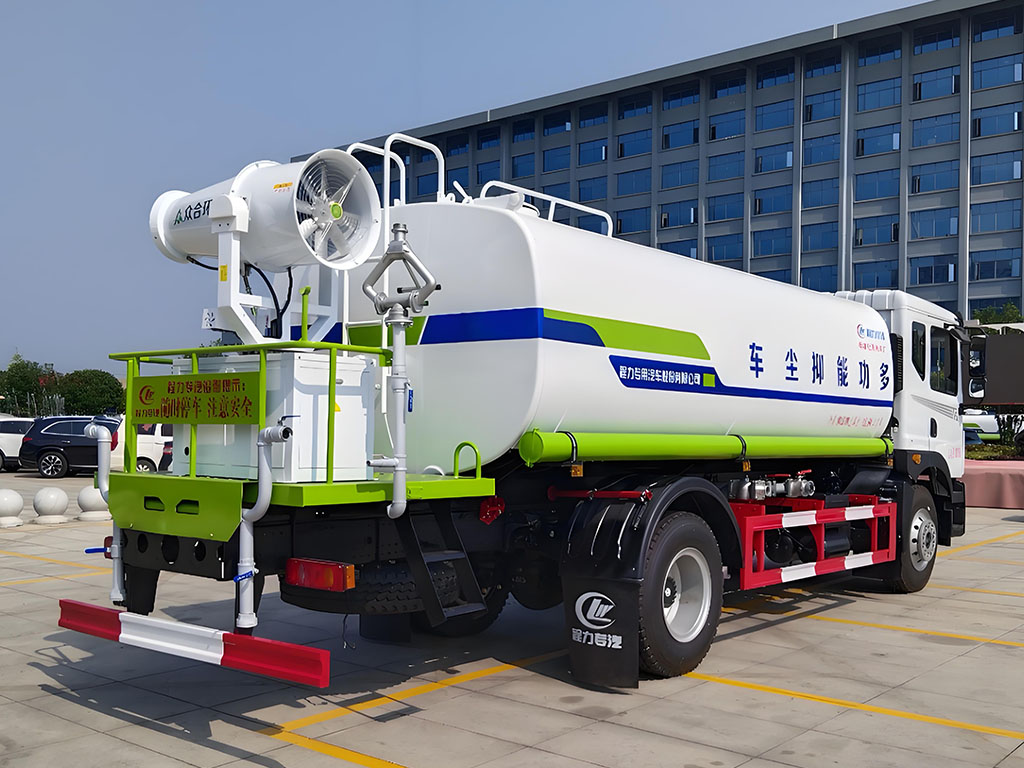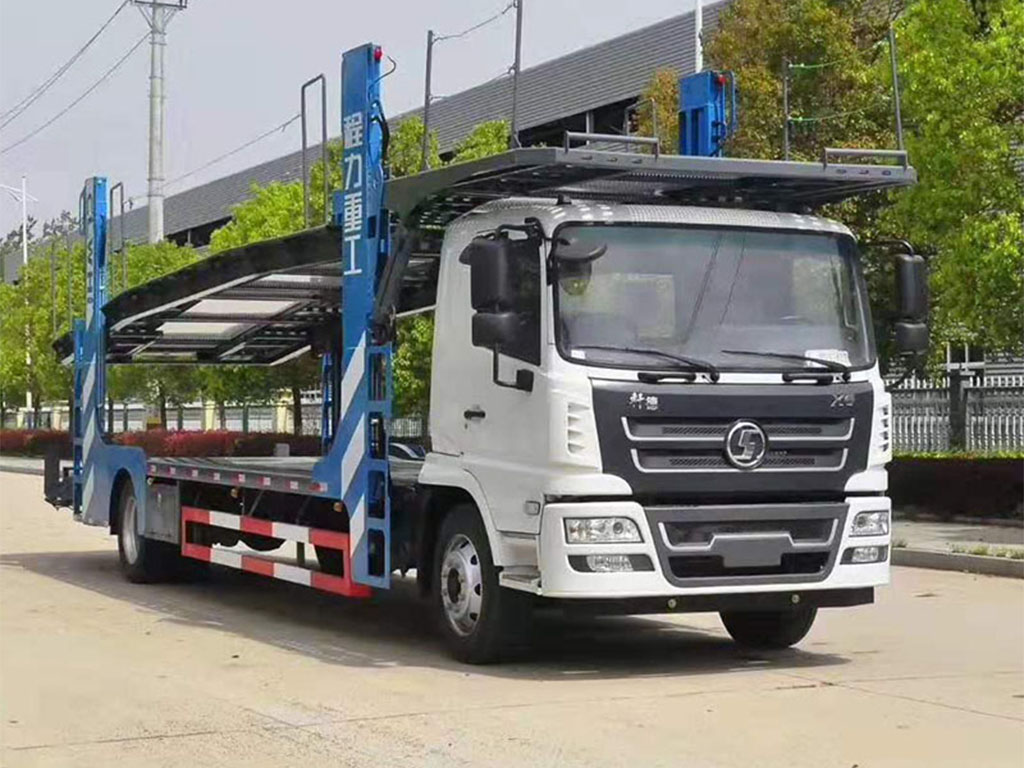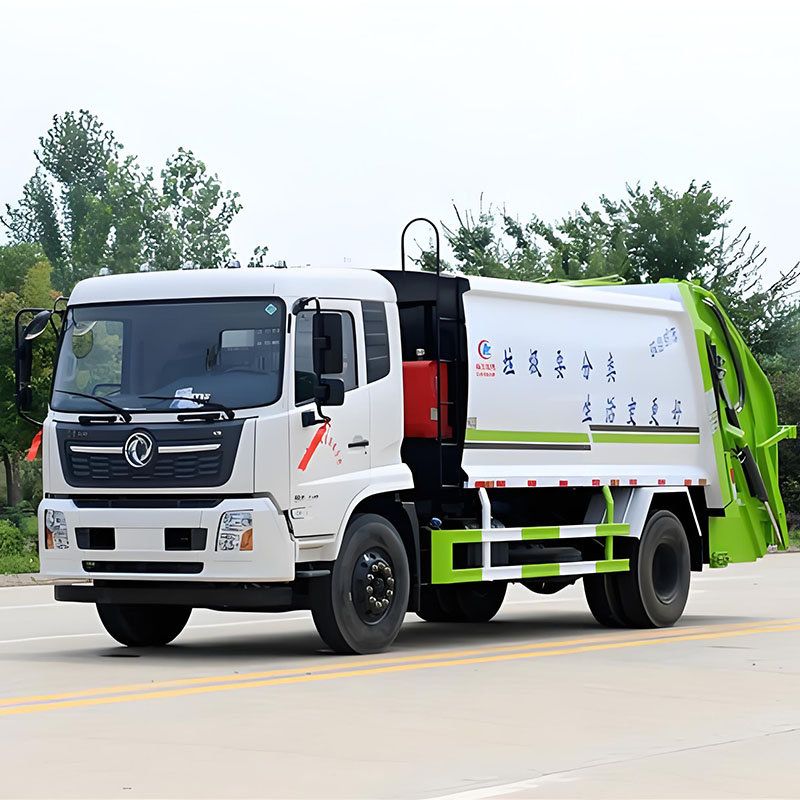-
Chengli Automobile Industry Park, Suizhou, Hubei, China
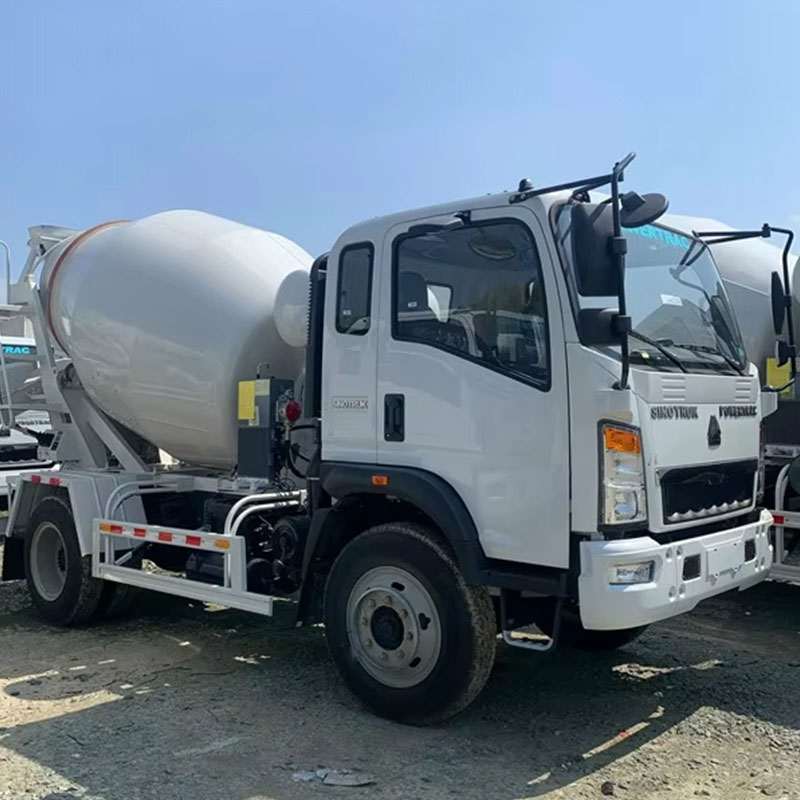
Concrete Mixer Daily Maintenance Checklist for Safety
I want your truck to run all day. No drama. No waste. No risk. With a clear list you win time. You save money. You keep people safe. I help you do that.
I am with CLW GROUP. I build trucks. I train teams. I support you with customized production, vehicle delivery, after‑sales, and technical consulting services. I use real shop skill. I use factory data. I use field tips from drivers and techs.
8FAQ
Why daily maintenance matters
- You raise uptime and productivity.
- You cut downtime and repairs.
- You protect the Driver/Operator and the public.
- You keep Ready‑Mix Concrete on spec.
- You meet DOT and OSHA rules.
Your daily maintenance checklist
Do this at the start of each shift. Keep it simple. Check. Note. Fix fast.
Pre‑operation inspection
- Exterior walk‑around: Concrete truck inspection, ready mix truck daily checks, and transit mixer pre‑trip inspection before you roll.
- Chassis and frame: Chassis condition concrete mixer and frame inspection concrete mixer. Look for rust. Look for cracks. Look for structural integrity concrete mixer.
- Drips: Leaks concrete mixer truck at the engine, transmission, hydraulic system, fuel tank, hoses, and fittings.
- Tires: Tire pressure concrete truck and tire wear concrete mixer. Check wheel bearing checks concrete mixer, axle checks concrete mixer, and mud flaps concrete mixer.
- Lights: Lights and signals concrete mixer. Check Headlights, Taillights, and Turn Signals. Add reflective tape concrete mixer where needed.
- Safety gear: Safety cones concrete mixer, fire extinguisher concrete truck, first aid kit concrete mixer, and safety belts concrete mixer.
- Identity: Vehicle Identification Number (VIN) concrete mixer is clean and visible.
- Label and tape: Reflective Tape intact.
- Mirrors and glass: Mirrors and glass concrete truck. Clean and set.
- Air and exhaust: Air filter inspection concrete mixer and exhaust system check concrete mixer.
- Body: Drum exterior and chute. Note dents. Note cracks. Check ladder/access points.
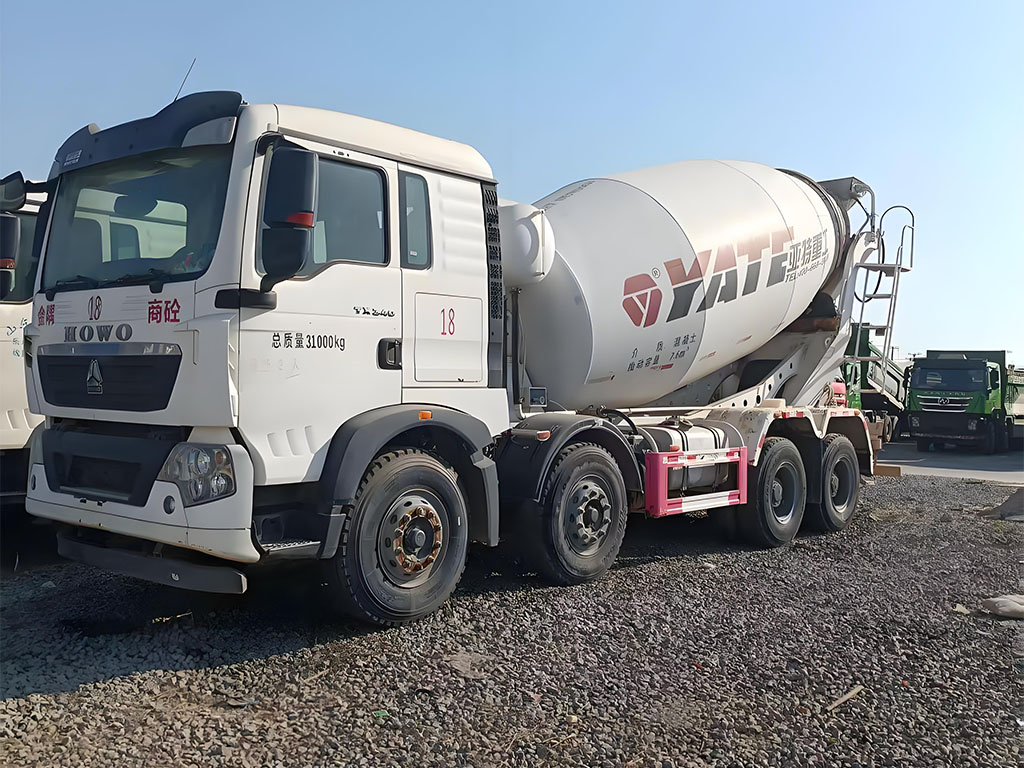
Cab interior and controls
- Fluids: Fluid levels concrete mixer truck. Do an engine oil check concrete mixer, coolant level concrete mixer truck, transmission fluid check mixer truck, and hydraulic fluid check concrete mixer. Check fuel level concrete truck.
- Gauges: Watch dashboard warning lights and engine performance concrete mixer.
- Brakes and steer: Brake system inspection concrete mixer and steering operation concrete mixer. Test the parking brake.
- Horn and wipers: Horn and safety equipment mixer truck, wiper blades concrete truck, and windshield washer fluid concrete mixer.
- Battery: Battery terminal checks concrete mixer.
- Belts: Belt tension concrete mixer. Listen for squeal.
- Clean cab: Cleanliness of cab concrete mixer.
Drum and mixing mechanism
- Rotation: Drum rotation check concrete mixer. It should be smooth.
- Inside: Mixer blade condition concrete mixer. Check blades/fins.
- Water: Water tank level concrete mixer. Test the water system functionality.
- Hopper and chute: Chute operation concrete mixer, hopper inspection concrete mixer, loading mechanism checks concrete mixer, and unloading mechanism checks concrete mixer.
- Wash system: Washout system concrete mixer. Plan for drum cleaning concrete mixer and chute cleaning concrete mixer after each pour.
Safety and paperwork
- Read the operator manual concrete mixer.
- Keep a maintenance log concrete mixer truck, a daily inspection report concrete mixer, and an inspection checklist.
- Follow your preventative maintenance schedule and truck maintenance schedule.
- Align with safety regulations concrete mixer, DOT inspection concrete mixer, OSHA standards concrete mixer, and environmental compliance concrete mixer.
Post‑operation checks and washout
- Clean: Use proper washout system concrete mixer steps. Proper washout techniques keep the drum/barrel and chute clear. Remove all paste and sand. That protects mixer drum wear concrete mixer and stops drum bearing failure concrete mixer.
- Look again: Check for new leaks, new dents, or heat marks like engine overheating concrete mixer or water pump failure concrete mixer.
- Park safe: Chock wheels. Use load security concrete mixer rules. Switch off. Secure keys.
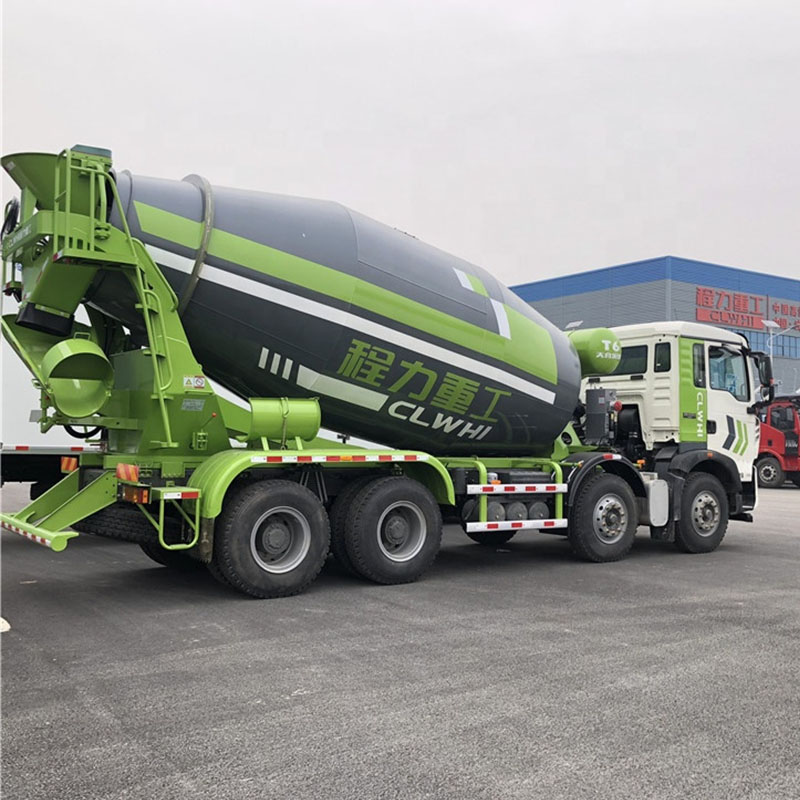
Beyond the daily: regular focus points
- Engine and drive: Engine and transmission fluids beyond daily check. Look at transmission shifting concrete mixer.
- Filters: Air filter and fuel filter status.
- Brakes: Brake pad wear concrete mixer and lines.
- Hydraulics: Hydraulic system checks concrete mixer, filters, and hydraulic oil contamination concrete mixer risk.
- Lube: Grease points concrete mixer and lubrication schedule concrete mixer truck with lubricants/grease.
- Power: Battery charge and cables.
- Belts: Belt tension and condition.
- Structure: Drive shaft inspection concrete mixer, suspension system concrete mixer, steering system, frame, axles, wheel bearings, and roadworthiness concrete mixer.
- People: Training for operators concrete mixer to cut operator fatigue concrete mixer and boost site safety concrete mixer.
- Records: Scheduled maintenance concrete mixer, repair records concrete mixer, parts replacement concrete mixer, and service manual concrete mixer truck.
- Goals: Equipment longevity concrete mixer, reducing downtime concrete mixer, cost‑effective maintenance concrete mixer, fuel efficiency concrete mixer, emission control concrete mixer, impact of maintenance on performance concrete mixer, concrete delivery efficiency, and mixer truck uptime.
Why pick CLW GROUP
I build to your job. I tune each Concrete Mixer Truck to your site and climate. I work with top manufacturer brands like Schwing, Putzmeister, and CIFA. I match engine options like Cummins or Detroit Diesel. I set transmission like Allison for smooth work. I deliver to your yard. I train your Fleet Manager, Maintenance Manager, Mechanic, and each Driver/Operator. I support your construction site with fast parts and clear guides. I help you follow compliance with manufacturer’s recommendations concrete mixer.
Want to see builds and options for high‑duty work that stay on spec and on time? Visit our proven cement mixer trucks for professional ready‑mix operations. Need a clean water tank for washout support and dust control? See our potable water tank truck solutions. Need lift help on site? Explore robust material handling cranes for trucks. For a full view of our scope visit our special trucks factory at CLW GROUP.
Quick table: what to check and why
| System | What I check | Why it matters |
|---|---|---|
| Tires and Axles | Pressure, wear, wheel bearings, axles, mud flaps | Safe steer and stop. Saves fuel. |
| Brakes | Pedal feel, pads, lines | Short stops. Fewer tickets. |
| Engine | Engine oil, coolant, belts | Stop overheat. Stop grind. |
| Transmission | Fluid, shifting | Smooth haul in traffic. |
| Hydraulics | Fluid, hoses, fittings, filters | Strong drum spin. No leaks. |
| Drum/Chute | Rotation, blades/fins, hopper, chute | Mix right. Pour clean. |
| Electrics | Lights, horn, battery | Road‑safe. Site‑safe. |
| Cab Safety | Safety belts, wipers, mirrors | Protect people. Improve view. |
| ID and Docs | VIN, logs, inspection checklist | Pass checks. Save fines. |
Data that backs you up
| Category | Data/Statistic |
|---|---|
| Tire care | Under‑inflation can cut fuel economy by about 1% for every 10 psi lost (DOE) |
| Brake compliance | Brake issues are a leading out‑of‑service cause in roadside inspections (FMCSA) |
| Daily checks | Fleets that do daily checks report 10%–20% fewer roadside events (industry surveys) |
| Washout | Proper washout cuts drum build‑up and extends blade life by 25%+ (manufacturer guidance) |
| Records | Trucks with full logs show higher resale and fewer disputes (fleet audits) |
FAQ
- What is the most critical daily check for a concrete mixer truck?
- Fluids and brakes. If you miss engine oil, coolant, brake system, and hydraulic fluid you risk a stop.
- How often should the hydraulic fluid be changed?
- Follow the service manual and preventative maintenance schedule. Test for hydraulic oil contamination at set hours.
- Can I perform these checks myself as an operator?
- Yes. A trained Driver/Operator can do all daily checks. A Mechanic should handle fixes and deep work.
- What are the consequences of skipping daily maintenance?
- Lost loads. Fines on DOT checks. Injuries. Costly repairs. Lower fuel efficiency. Slow concrete delivery.
My promise to you
I give you a clear list. I build a strong truck. I train your team. I keep parts ready. I stand behind the work with after‑sales and technical consulting. You get uptime. You get safe roads. You get clean pours.
References
- FMCSA. Driver Vehicle Inspection Reports and Brake System Guidance. source
- OSHA. Occupational Safety and Health Standards for Trucks and Construction Sites.source
- NRMCA. Plant and Truck Maintenance Safety Guide.source
- Cummins Inc. Engine Operation and Maintenance Manuals. source
- Allison Transmission. Service Tips for Vocational Trucks.source



